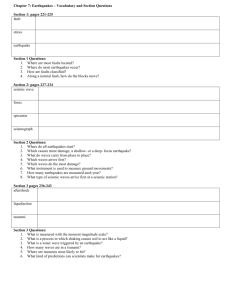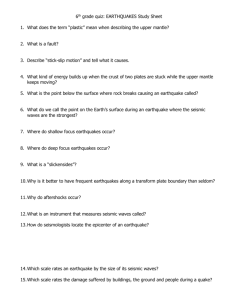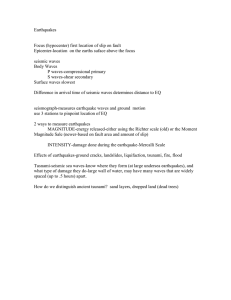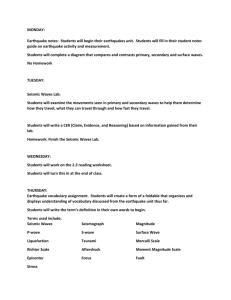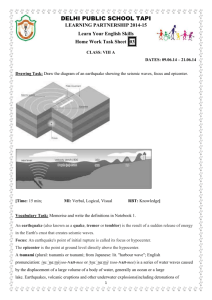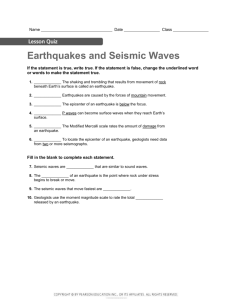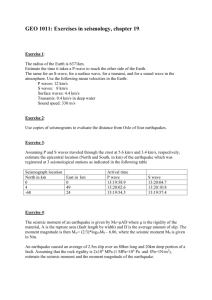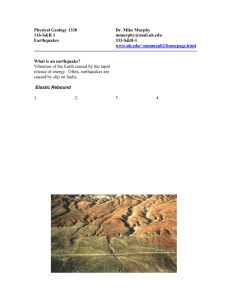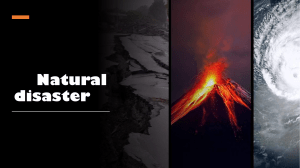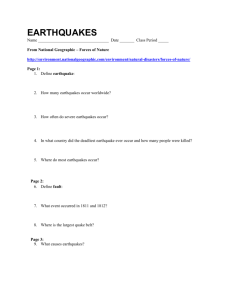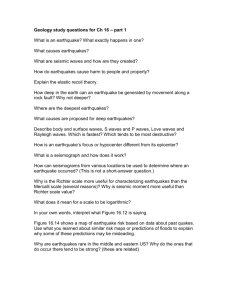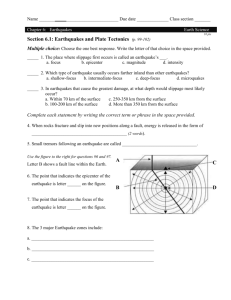Earthquakes - University of Hawaii at Hilo
advertisement
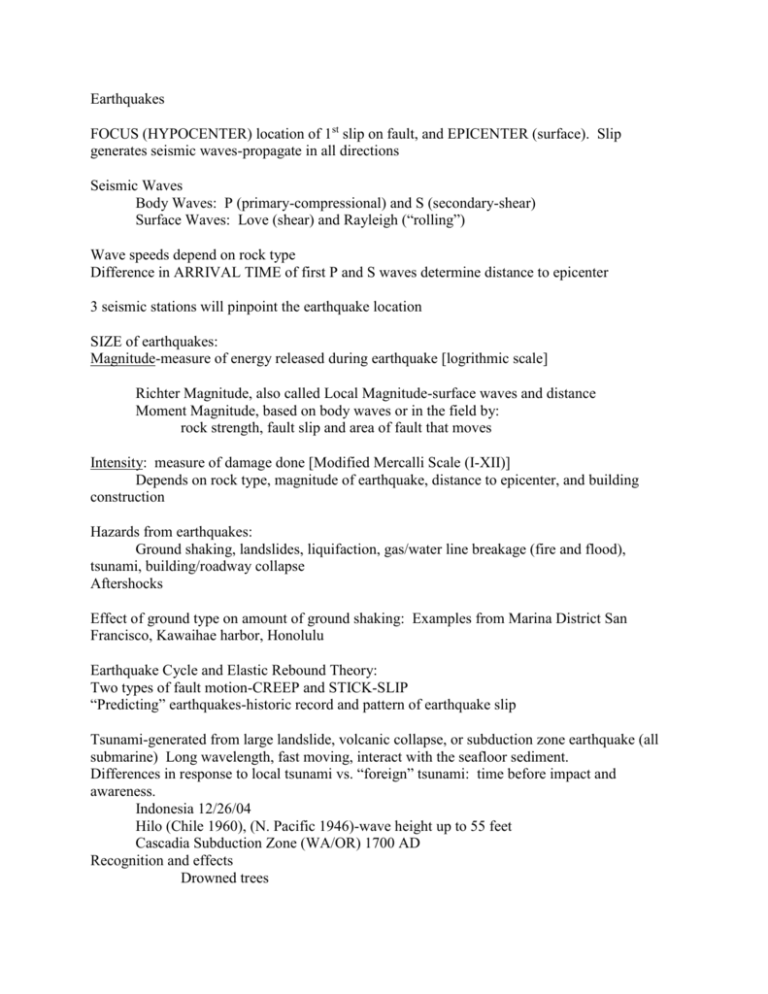
Earthquakes FOCUS (HYPOCENTER) location of 1st slip on fault, and EPICENTER (surface). Slip generates seismic waves-propagate in all directions Seismic Waves Body Waves: P (primary-compressional) and S (secondary-shear) Surface Waves: Love (shear) and Rayleigh (“rolling”) Wave speeds depend on rock type Difference in ARRIVAL TIME of first P and S waves determine distance to epicenter 3 seismic stations will pinpoint the earthquake location SIZE of earthquakes: Magnitude-measure of energy released during earthquake [logrithmic scale] Richter Magnitude, also called Local Magnitude-surface waves and distance Moment Magnitude, based on body waves or in the field by: rock strength, fault slip and area of fault that moves Intensity: measure of damage done [Modified Mercalli Scale (I-XII)] Depends on rock type, magnitude of earthquake, distance to epicenter, and building construction Hazards from earthquakes: Ground shaking, landslides, liquifaction, gas/water line breakage (fire and flood), tsunami, building/roadway collapse Aftershocks Effect of ground type on amount of ground shaking: Examples from Marina District San Francisco, Kawaihae harbor, Honolulu Earthquake Cycle and Elastic Rebound Theory: Two types of fault motion-CREEP and STICK-SLIP “Predicting” earthquakes-historic record and pattern of earthquake slip Tsunami-generated from large landslide, volcanic collapse, or subduction zone earthquake (all submarine) Long wavelength, fast moving, interact with the seafloor sediment. Differences in response to local tsunami vs. “foreign” tsunami: time before impact and awareness. Indonesia 12/26/04 Hilo (Chile 1960), (N. Pacific 1946)-wave height up to 55 feet Cascadia Subduction Zone (WA/OR) 1700 AD Recognition and effects Drowned trees “Orphaned” tsunami in Japan Sand deposit over bay mud Earthquakes in Hawaii Volcano Related (Magma movement) Landslide Related (giant-hasn’t occurred for many 1000s years)-Moloka`i, Kealakekua, Oahu examples Flexural Slip due to weight of islands (M6.7, M 6.0 aftershock)
